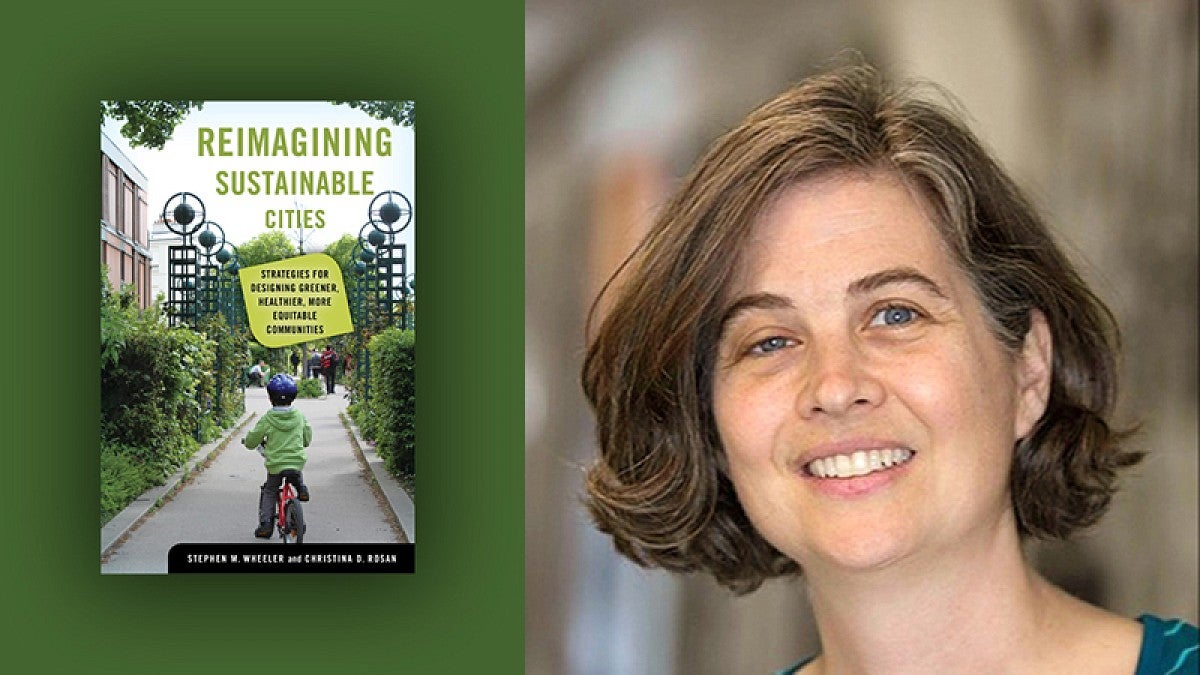The U.S. population could reach 438 million by 2050, raising questions about housing, quality of life and sustainability that will be discussed by an expert in urban geography in this year’s Kritikos Lecture.
Christina Rosan, a professor of geography and urban studies at Temple University, will explore “Reimagining Cities to be Sustainable, Healthy, Resilient, Green, and Equitable” on Wednesday, Oct. 27, at 5:30 p.m. via Zoom as the Oregon Humanities Center’s 2021-22 Kritikos Professor.
Rosan’s lecture, the first in the center’s 2021–22 “Imagining Futures” series, is free and open to the public. To attend, register online. Rosan also was recently interviewed on UO Today.
Rosan contends that the challenges facing cities in the global climate emergency are enormous. She believes people need to question the current political, economic, social and ecological arrangements and the way they are expressed in planning decisions and the metropolitan landscape.
But rather than despair, she says, people should reimagine a different path forward and says many of the solutions are already being implemented in some form in cities across the globe.
“We … need collaborative urban governance where urban agriculture, urban greening, affordable housing and other community infrastructure like schools, public transit, parks, hospitals and grocery stores are planned for together,” she said. “Together, these are the building blocks of sustainable, equitable and resilient communities, which will be critical as we face the climate challenges ahead.”
In addition to her faculty post, Rosan is an affiliated faculty member in global studies, the master of public policy program, Latin American studies, and the Center for Sustainable Communities. Her monograph “Governing the Fragmented Metropolis: Planning for Regional Sustainability,” published in 2016, examines metropolitan governance and land use planning in Boston, Denver and Portland.
Rosan is active in the Philadelphia sustainability community, where she is helping develop inclusive, community-led, intersectional and reparative planning processes and policies to create a racially just and climate-ready city.
Her forthcoming book, “Reimagining Sustainable Cities,” co-authored with Stephen Wheeler, will be published by the University of California Press in December. Rosan and Wheeler ask big-picture questions like how does the nation get to carbon neutrality, how do people adapt to a climate-changed world, and how can communities create affordable, inclusive and equitable cities. Rather than dwelling on the analysis of problems, the authors prioritize solutions-oriented thinking, surveying historical trends, providing examples of constructive action worldwide, and outlining alternative problem-solving strategies.


